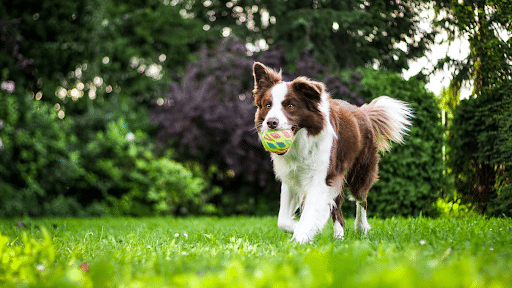Millions of people have dogs and/or cats as pets. Anyone who has a pet understands that our furry friends are members of the family, and we’ll do whatever we can to provide them with happy, healthy and safe lives.
Unfortunately, millions of people also deal with pests like mosquitoes and other bugs. Especially at certain times of the year, mosquitoes and other types of buzzing annoyances can pester us inside when we’d rather be outdoors enjoying the weather. Increasingly, people are turning to mosquito misting systems to control mosquitoes around their outdoor living spaces, but are they safe for pets?
The most authoritative voice on the subject of pesticide safety is the U.S. EPA. From its website, “EPA has assessed the human health and environmental risks of the pesticides most commonly used in misting systems. Most of these pesticides last only short periods in the environment, so long-term exposure to humans is not expected. Based on its assessment, using toxicity data and exposure estimates, EPA does not expect risks of concern to humans when these chemicals are used in outdoor residential systems according to labeling specific for use in these systems.”
So, the EPA specifically mentions humans, but are “mosquito misting systems safe for pets?
So… Are Mosquito Misting Systems Safe For Pets?
Are you familiar with the express “the danger is in the dose?” It basically means that any material can be harmful if a person or pet is exposed to enough of if. “Enough of it” is obviously different for water than for cyanide.
What materials are we talking about? The active ingredients in the concentrates most commonly used in mosquito misting systems are natural pyrethrins or its synthetic cousin, permethrin. There are also some “natural” formulations applied by misting systems that contain plant oils or soaps, but let’s focus on permethrin, since it is most commonly used.
Whether permethrin is toxic depends on the animal species as well as the concentration synergists and carriers used in the product. The use of pyrethrins/pyrethroids is very safe in dogs; however, cats and fish are very sensitive to pyrethrins/pyrethroids.
Mosquito Misting Systems and Dogs
You’ll find permethrin in a wide range of products designed for dogs – in shampoos, impregnated in collars, and spot treatments for ticks or fleas. Topical tick and flea treatments for dogs that have a concentration of permethrin of 65% are commonly used on dogs without problems. In contrast, the permethrin “dose” from a mosquito misting system is very low – usually around 10 or fewer parts permethrin per 10,000 parts mist. And most systems are programmed to mist only 2-3 times per day for around 30-45 seconds each time, so there is potential for only infrequent exposure.
Permethrin and Cats
However, cats are different from dogs. A cat’s liver lacks enzymes that break down permethrin and it can accumulate in its body and make it sick. It turns out that one of the most common ways cats are poisoned is when owners apply a spot flea treatment meant for dogs on their cat.
That said, while cats are more sensitive to permethrin than dogs, the mist coming from the system is so dilute that it won’t be harmful. And, since the systems do not spray more than a few times per day, it’s also improbable that your cat would be exposed very often.
If you are a really serious cat-person, you probably already know about the dangers of permethrin. If you’re worried, you can always use the “natural” formulations in your mosquito misting system out of an abundance of caution.
If you’d like to learn more about the safety profiles of formulations used in mosquito misting systems, feel free to click here.
Ideas To Consider Regarding Mosquito Misting Systems
If you’re going to employ a mosquito misting system, you should keep the following protective and preventive steps in mind given the information above:
- Work closely with your provider to make sure that you’re properly diluting the sprays that are coming out of your misting components. If you do this correctly, it should minimize any risks your pets will face yet still deliver effective doses of chemicals that will keep mosquitoes at bay as you want.
- Go with an automated mosquito misting system if at all possible. Doing so will allow you to set your timer so that the misting occurs during times of the day or night when your pets are not going to be outside. This is generally easier for dogs than it is for cats, especially cats that roam around outdoors after the sun goes down, but you know your pets’ routines and can work around them.
- Finally, make sure that no one is outdoors when your mosquito misting system is engaged. This simple step should all but eliminate any potential risks as long as your dosage is at the advised level.
How MistAway Systems Can Help
If you want to make sure that you do what you can to eliminate mosquitoes from your yard but you want to do so safely for you and your pets, work with MistAway Systems. We offer online informational resources that will help you set up and manage your system properly. We will also work with you to help you if you encounter any questions or concerns as you choose and maintain your mosquito misting system.
Finally, if you’d like more localized information, find a MistAway system dealer near you who can help you work through your questions before you take the next step. Safely eliminating mosquitoes from your yard is possible, so work with MistAway Systems to make that happen.

